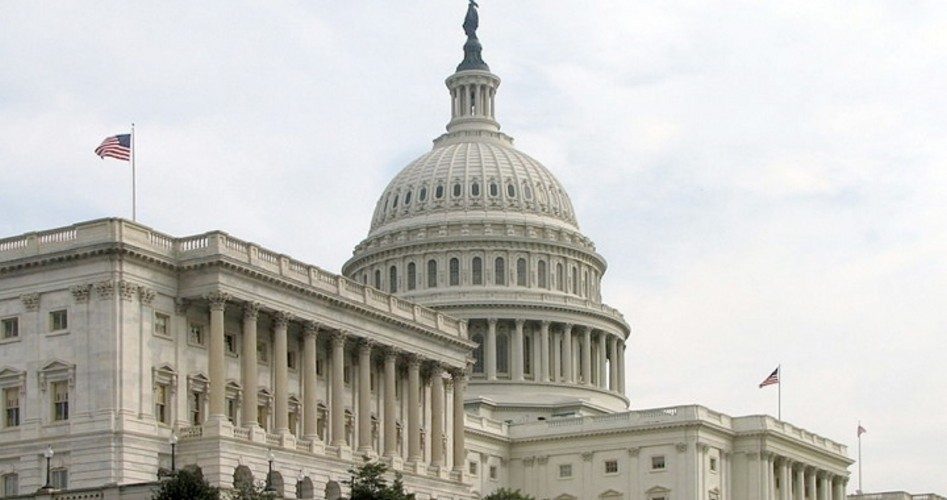
The U.S. Senate rejected a cloture motion to end debate and pass the “Disclose Act of 2012” July 16 on a nearly party-line 51-44 vote. The bill that would have required disclosure of donors who give to independent political causes when those independent organizations use $10,000 or more in an election cycle in communications that mention a political candidate.
The Disclose Act was a direct reaction by Senate Democrats to the 2010 Citizens United decision by the U.S. Supreme Court, which by a 5-4 vote lifted the McCain-Feingold Campaign Finance law restrictions on independent political expenditures on constitutional grounds, but left in place portions of the law that required disclosure of donations by candidates. Three-fifths of the entire Senate (60 votes) are required to invoke cloture, and the Senate consists of 49 Democrats, 48 Republicans and three independents who caucus with the Democrats (Patrick Leahy and Bernie Sanders of Vermont and Joe Lieberman of Connecticut).
Rhode Island Democrat Sheldon Whitehouse told the Senate back on March 21 of his Disclose Act, S. 2215:
The bill we are introducing today has been trimmed down so it just does two simple things: One, if you are an organization such as a corporation, a super PAC or a 401(c)(4) group spending money in an election campaign in support of or in opposition to a candidate, you have to tell the public where that money came from and what you are spending it on in a timely manner…. [and two,] If you are a top executive or a major donor of an organization spending millions of dollars on campaign ads, you have to take responsibility for those ads by having your name on the ad, and in the case of an executive appearing in the ad yourself.
Senator Patrick Leahy claimed in Senate debate that “Corporations cannot vote in our democracy. They are artificial legal constructs meant to facilitate business. The Founders understood this. Americans across the country have long understood this. A narrow majority on the Supreme Court apparently did not.” But the First Amendment guaranteed not just freedom of speech and the press, but also “freedom of assembly,” which is what political organizations do: assemble. The Founding Fathers never condemned the existence or influence of political associations, so that by the 1830s Frenchman Alexis de Tocqueville observed of American political associations in his Democracy in America: “The right of associating in this fashion almost merges with freedom of the press, but societies thus formed possess more authority than the press.” De Tocqueville saw this kind of unregulated political association as a strong positive for American society.
Whitehouse claimed in Senate debate that anonymous political speech was by itself unseemly, stating: “If those motives were good for America, would they be so desperate to keep what they are doing secret? I don’t think so.” If Whitehouse is right, what are Americans to conclude of the Federalist papers, anonymously written letters under the pen name “Publius” and designed to get states to adopt the U.S. Constitution in 1787 and 1788? What of the similarly anonymous Anti-Federalist papers that urged rejection of the Constitution? And what of James Madison and Alexander Hamilton’s anonymous Pacificus/Helvidius debates in 1794, after adoption of the Constitution? Were these anonymous political communications all insidious conspiracies against the public interest, or is anonymous political speech as American as the Federalist papers?
In his partial dissent on the Citizens United decision, Supreme Court Associate Justice Clarence Thomas explained that forced disclosure of political speech is the corrupting influence on elections, rather than anonymity. “I cannot endorse a view of the First Amendment that subjects citizens of this Nation to death threats, ruined careers, damaged or defaced property, or pre-emptive and threatening warning letters as the price for engaging in” what Thomas labeled “core political speech, the primary object of First Amendment protection.”
Thomas revealed several very practical examples of political intimidation on the basis of disclosure rules in some states. In California, Thomas wrote, “Some opponents of Proposition 8 [the same-sex marriage ban] compiled this information and created Web sites with maps showing the locations of homes or businesses of Proposition 8 supporters. Many supporters (or their customers) suffered property damage, or threats of physical violence or death, as a result. They cited these incidents in a complaint they filed after the 2008 election, seeking to invalidate California’s mandatory disclosure laws…. The success of such intimidation tactics has apparently spawned a cottage industry that uses forcibly disclosed donor information to pre-empt citizens’ exercise of their First Amendment rights.”
In addition, Thomas summarized a Wall Street Journal article on New York State disclosure laws in the campaign against state Attorney General Eliot Spitzer:
For example, a candidate challenging an incumbent state attorney general reported that some members of the State’s business community feared donating to his campaign because they did not want to cross the incumbent; in his words, “I go to so many people and hear the same thing: ‘I sure hope you beat [the incumbent], but I can’t afford to have my name on your records. He might come after me next.’”
For this reason, Congress adopted a constitutional amendment instructing that “Congress shall make no law … abridging the freedom of speech, or of the press; or the right of the people peaceably to assemble.” [Emphasis added.] The Senate cloture vote was a clear support for Congress passing “no law” about the peaceable assembly of people into political organizations … even if those political organizations are labeled “corporations.”
Photo: North wing of the Capitol, containing the Senate Chamber



